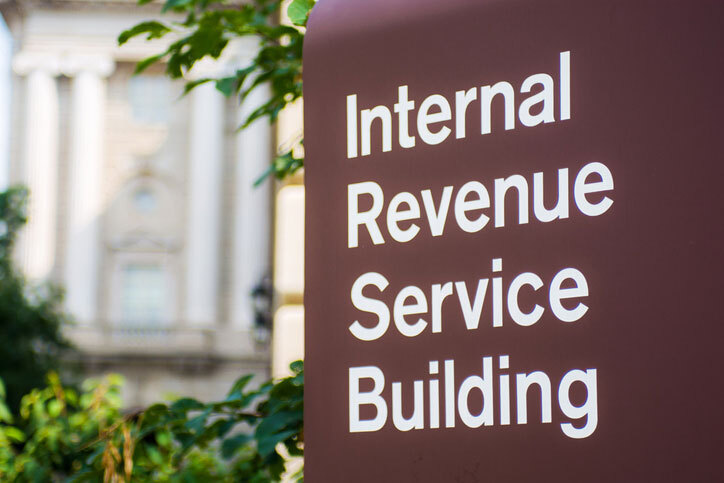Tax Extension Deadline
Amid the pandemic, the IRS decided to change the date of the National Tax Day to July 15, 2020. This extended deadline provided Americans with more time to file their 2019 taxes while facing an unprecedented shift in the economy. However, many taxpayers knew in advance that they would be needing more time to file. These individuals filed for tax extensions—something that isn’t at all new to the tax season.
Every year there are high numbers of taxpayers that take advantage of this filing tool, but what makes this year different?
With the original Tax Day change from April to July, the tax extension deadline changed as well. Taxpayers that applied for the extension have until October 15, 2020, to file their 2019 taxes.
What if I need to file for a tax extension?
The process to apply for an extension is a very tedious one. There is a lot of paperwork to fill out that must be given to the IRS, and there’s a waiting period to hear back from them (which is very typical of the IRS).
You must be approved for your extension by the national Tax Day, which for this year was the 15th of July. If you did not file by that date, and you were not already approved for the extension by that date, then your taxes are now past due and the IRS can take consequential action against you.
What to do if you’re past due
If you missed the deadline to file and did not file for an extension, then you must still file and pay your taxes. The difference is, you may have penalties such as interest, or if you owe a lot, liens and levies.
You have three options at this point: either pay everything that you owe in full, negotiate for a payment plan that will bill you monthly, or seek tax relief assistance.
Tax relief programs benefit those who cannot afford to pay their taxes due to financial hardship. There are different settlement opportunities tailored for various circumstances that may be affecting you.
While you can negotiate with the IRS on your own, it’s best to consult a tax professional before confronting them. A professional will not be easily intimidated and is knowledgeable of the many intricacies of the long tax code.
Requesting a tax extension for next year
With the trials and hardships of 2020, it’s not unlikely that you may be concerned about filing in 2021. If you fear that you may fall under circumstances that will keep you from filing on time (assuming that next year’s Tax Day goes back to April), then you should consider an extension.
You can apply for an extension by filling out IRS Form 4868. It should be noted, however, that the IRS might request additional information from you regarding your application. There is also a waiting period, which can make the process feel a bit tedious and long.
The sooner you apply the better, but so long as you apply before the original tax deadline for the fiscal year, you will be eligible for the extension.
What if I miss the tax extension deadline?
If it turns out that you don’t need the extension, then you can file before your extension date. If you miss the extension deadline, you cannot apply for a new one. Your taxes will be considered past due.
In need of professional assistance?
Contact us today or take our brief survey here to receive assistance with late filing and tax relief.
Any new or systemic Liens and/or Levies will also be suspended for the time being.
For taxpayers who are considered “seriously delinquent”, the IRS will suspend any new certifications for the remaining period. Any taxpayer who falls into this category in reminded and encouraged to enter into an Installment Agreement or apply for an Offer In Compromise.
The IRS will not forward any new delinquent accounts to private collection agencies at this time.
Taxpayers have until July 15, 2020 to verify to the IRS they are qualify for the Earned Income Tax Credit or to confirm their income. If the taxpayer is unable to verify their credentials or provide appropriate documents for this credit, they are encouraged to notify the IRS before the deadline. No cases will be denied this credit for failure to provide requested information until July 15.
Case workers will continue business as usual. However, most case work will be conducted remotely (video/over the phone conferences). Any requests for documentation sent by the Office of Appeals should be responded to in a timely manner to ensure a smooth process.
The IRS will continue to take the appropriate measures to stay compliant and protect the applicable statutes of limitations. In situations where certain statutes may be compromised, taxpayers are encouraged to extend such statutes. Otherwise, Notices of Deficiency will be issued by the IRS and similar actions will be pursued to protect the interests of the government in preserving such statutes. Where a statutory period is not set to expire during 2020, the IRS is unlikely to pursue the foregoing actions until at least July 15, 2020.
Practitioners are reminded that PPS wait times may be significantly longer, depending on staffing levels and allocations going forward. The IRS will continue to monitor this as situations develop.
“The IRS will continue to review and, where appropriate, modify or expand the People First Initiative as we continue reviewing our programs and receive feedback from others,” Rettig said. “We are committed to helping people get through this period, and our employees will remain focused on these and other helpful efforts in the days and weeks ahead. I ask for your personal support, your understanding – and your patience – as we navigate our way forward together. Stay safe and take care of your families, friends and others.”
Learn how easy it is to qualify for tax savings.




